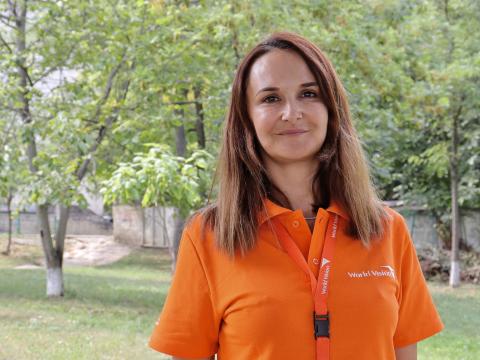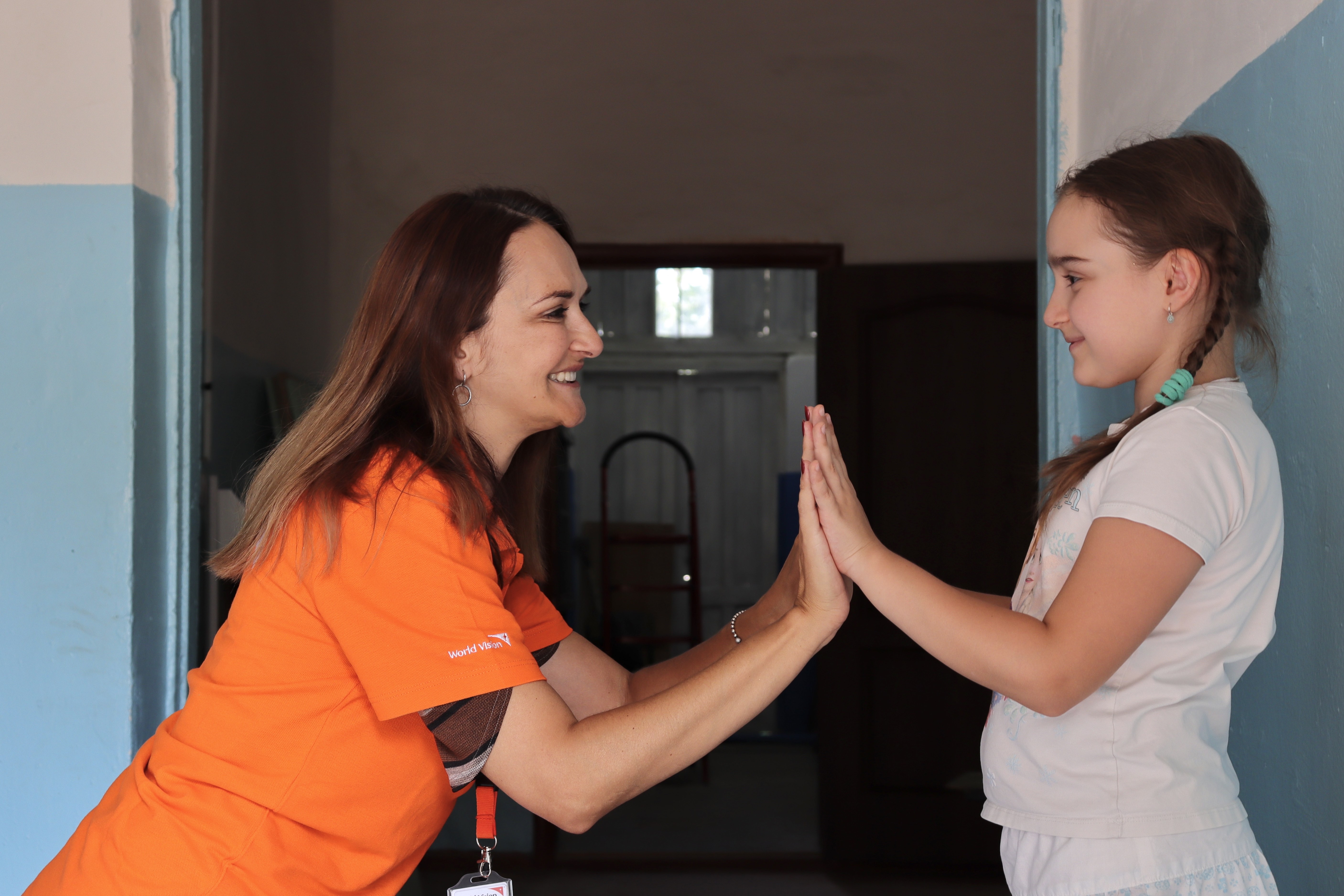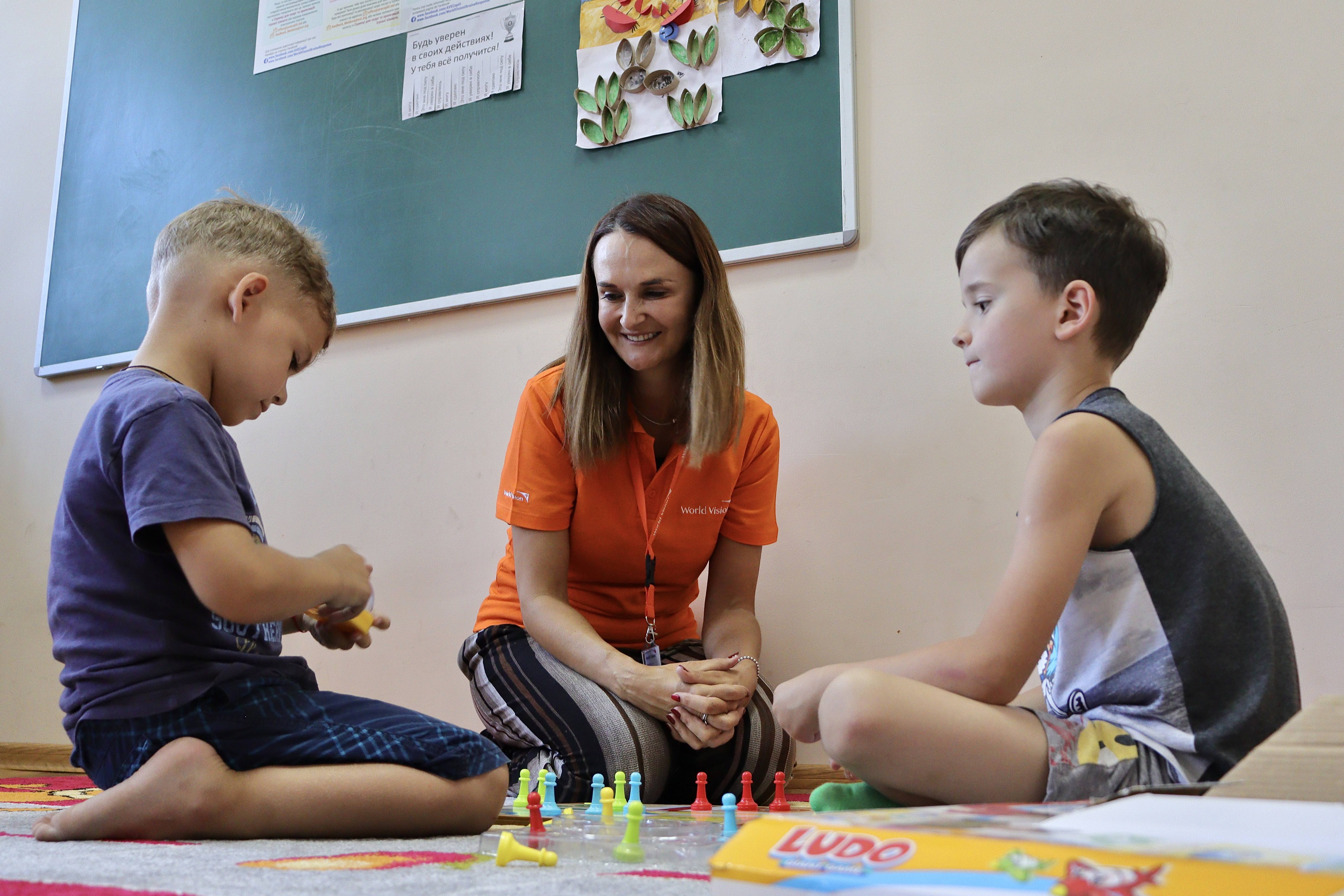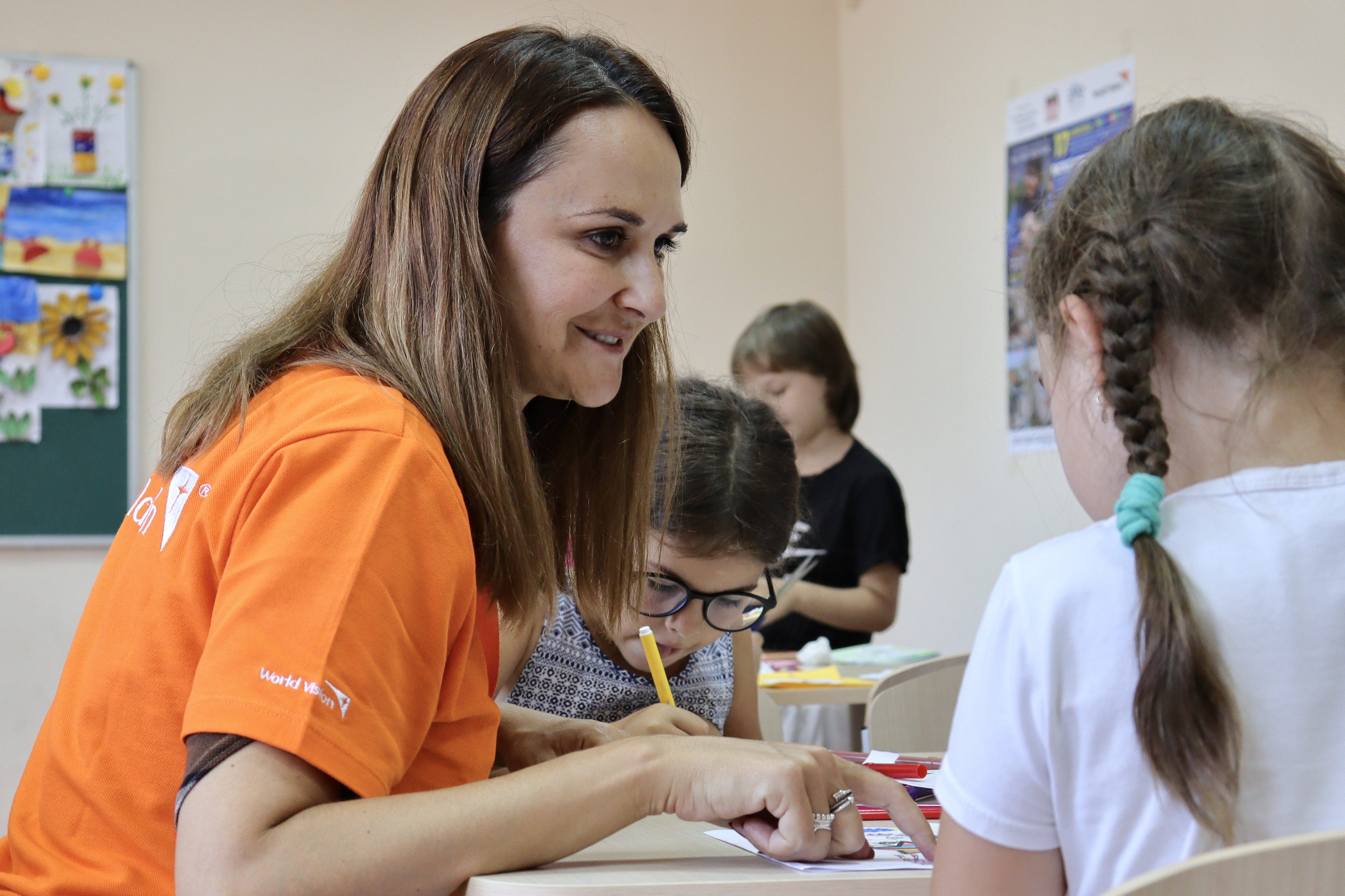Adela Softic: Former refugee from Bosnia and Herzegovina now a humanitarian in the Ukraine crisis

The story of Adela Softic, World Vision’s Multi-Project Manager in Moldova for Ukraine Crisis Response goes back when she was 14 years old in Bosnia and Herzegovina, set to graduate from elementary school. Her only concern at that time was passing the final exams. She never got to take the exams that year. The war robbed her of her dreams, friends, and ten years at home. But she didn’t give up on her ideals, and 31 years later, she’s a humanitarian who helps dozens of young girls with similar dreams.
It was Friday morning in 1992, April 3. As the clock struck 8 a.m., students from Sarajevo’s primary school streamed into the classroom in the frigid morning air. Adela, 14, sat comfortably in her usual seat in the third pew.
In the history classroom, with its five rows of wooden desks worn down by time and the generations of students who had passed through that classroom, the teacher announced the list of compulsory readings for that year’s final exam.
Adela took out her bright green notebook, and meticulously scribbled down her final test dates. It was her last year of primary school, which meant weeks of intense study before her exams in May.
That Friday passed like any other. After six lessons, six bell rings between classes, and a hastily eaten sandwich during lunch break, little did Adela know that Friday was the last time she would see her friends. How could she possibly know?
“We were supposed to have a prom in May,” she recalls, with a gleam in her almond-shaped brown eyes. “I never got the chance to say goodbye to them,” she adds.
Most of her friends fled to other countries or were killed during the war. She would meet some of them years later.

“Death suddenly became part of our daily lives”
Next Monday, April 6, 1992, Sarajevo was turned into a battle zone, the sound of gunfire and artillery bombardment echoing loudly in the streets, in people’s houses, in schools and hospitals.
There was a lack of running water and electricity for months. When the capital city had been blockaded, residents received only limited food supplies. From water to the most basic utilities, everything was rationalized.
“Many children my age reached that level of maturity before their time,” recalls Adela. She and her friends would lug entire water containers from one end of the city to the other, walking for miles.
When they finished one shift, they rushed for the second, fetching water for their elderly neighbours who could not walk long distances.
People went missing every day, whether it was a neighbor, a friend, or a long-distance relative. “Each day, someone close to you is killed,” says Adela. “That’s when it becomes real,” she goes on. “Death suddenly became part of our daily lives.”
Adela and her family left Sarajevo after more than eleven months of living in the city’s shelters, unaware that she would only return after ten years. “I took only two things, my dog and a diary of all my teenage memories of a peaceful Bosnia.”
Our shared fate
She never took those final exams in Sarajevo. As soon as her family relocated to northern Serbia, in the small town of Bačka Palanka, she was enrolled in a local high school, with other 25 Bosnian children.
Her life started from scratch in a small apartment in that Serbian town – the cheapest rent her parents could afford at the time. They couldn’t obtain highly qualified jobs.
When you know you can make even a small difference in that child’s life, you feel unstoppable.
In ten years of refuge in the neighbouring country, her family changed their living place twelve times. “I got used to packing my life in a box,” shares Adela.
As she recalls that time, a vivid memory comes back to her mind. During her first months in Serbia, dozens of Bosnian refugee children received tennis shoes and winter jackets as humanitarian aid.
“They were both comfortable and elegant, and I couldn’t wait to wear them to school and brag about my new look,” recalls Adela. When she arrived at school the next morning, she noticed that all the 25 refugee children in her class were wearing identical jackets and tennis shoes.
“We had the same look,” she goes on. “When I wore them, it reminded me of our shared fate.”
Radio amateurs – the only link between Bosnia and Serbia
During the war, Adela volunteered as a radio amateur operator in Serbia. They used the radio frequency spectrum to communicate between the two countries. There was no other way to connect with Sarajevo. The phones were not working, and the radio amateurs were Sarajevo’s only link to the outside world.
“I transmitted those messages between Serbia and Bosnia,” explains Adela. People from Serbia tried to find their relatives in Bosnia, knowing only their names and surnames. A team of volunteers tried to locate those people and connect with their families.
“I started going to the radio amateur because I wanted to stay connected with my grandmother who remained in Sarajevo, but then it became a volunteering job with much more meaning to me,” Adela shares.
The 16-year-old girl learned Morse code to communicate telegraphic information utilizing rhythm. Throughout that time, she was always connected to Sarajevo. “It was a safe place for me,” recalls Adela.

Without ever meeting them in person, she became friends with radio amateurs from Bosnia through daily correspondence. Everything was done over the radio. “I met several of them after the war,” she says.
The return
She was 25 when she first returned to Sarajevo. Restaurants and cafés have replaced bomb shelters that previously lined the streets and subways. Children played joyfully near the five-story buildings where artillery shells once landed.
“I fell even more in love with Bosnia,” recalls Adela, genuinely smiling. “We had some kind of hope for the future, and I wanted to be a part of that future,” she adds.
Returning to Sarajevo, her life settled down quickly. After graduating from the Bosnian language and literature faculty, she started a family of her own. She joined World Vision in 2007, marking the beginning of more than 15 years of significant humanitarian work.
Her work has been focused on the migrant crisis, children without parental care, peace building, and integration of Roma communities in Bosnia and Herzegovina during the past few years. Today she is serving the Ukrainian refugees in Moldova.
“I wanted to help, but not only with a package of food or some winter jackets,” explains Adela. “I wanted to make them feel understood, seen, and heard of their suffering.” “I have been there as well,” she adds.
A year on, she could still see herself in every Ukrainian girl who crosses the border, as she once did in Serbia. “It hits me from nowhere,” she says. “You are fine, but then all those memories come back.”
Thirty-one years later, and she is still a child of war, becoming small and fragile when those recollections return.
“All the people we serve are real heroes to me,” says Adela.
She concludes, “When you know you can make even a small difference in that child’s life, you feel unstoppable.”

Story and photos by Laurentia Jora, Communications Coordinator